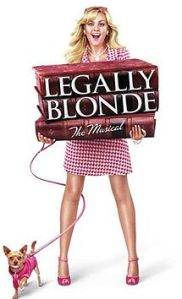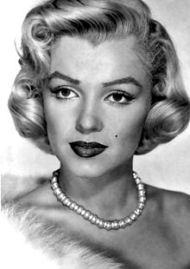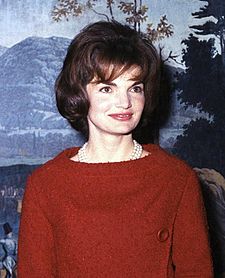 In my glamorous life as a contract techie (haha), I’ve been spending the past couple of weeks working backstage as a sound tech on a production of “Legally Blonde, The Musical”. Based on the 2001 movie, the plot is pretty familiar: blonde sorority babe Elle Woods pursues a law degree at Harvard in an attempt to win back her ex-boyfriend, and along the way discovers that she’s actually pretty good at this “law” thing when she wins a case by catching two witnesses perjuring themselves: the first by claiming he’s not gay (but clearly he was, since he didn’t respond to Elle’s cheerleader dancing), and the second by lying about taking a shower after getting a perm (and Elle, of course, knows everything about hair care). Elle ends up deciding that she’s better off without said ex-boyfriend in her life, getting her law degree, and marrying her T.A. instead. The show is, of course, plagued by sexism, racism, classism, and homophobia. If I were to go into all of the problems with the show, this would be a VERY long blog post, so I’m going to stick to just the one that is, in my opinion, the most insidious: the “Marilyn vs. Jackie” problem.
In my glamorous life as a contract techie (haha), I’ve been spending the past couple of weeks working backstage as a sound tech on a production of “Legally Blonde, The Musical”. Based on the 2001 movie, the plot is pretty familiar: blonde sorority babe Elle Woods pursues a law degree at Harvard in an attempt to win back her ex-boyfriend, and along the way discovers that she’s actually pretty good at this “law” thing when she wins a case by catching two witnesses perjuring themselves: the first by claiming he’s not gay (but clearly he was, since he didn’t respond to Elle’s cheerleader dancing), and the second by lying about taking a shower after getting a perm (and Elle, of course, knows everything about hair care). Elle ends up deciding that she’s better off without said ex-boyfriend in her life, getting her law degree, and marrying her T.A. instead. The show is, of course, plagued by sexism, racism, classism, and homophobia. If I were to go into all of the problems with the show, this would be a VERY long blog post, so I’m going to stick to just the one that is, in my opinion, the most insidious: the “Marilyn vs. Jackie” problem.
Something that’s probably very easily overlooked in a casual viewing of this musical is the fact that Elle dropped everything to follow her ex to law school. She moved across the country, abandoning her dreams of a film career and leaving friends and family behind. The fact that her dreams changed through the course of the action is all well and good — but the judgmental attitude towards the life she left behind is something incredibly problematic. Throughout the musical, her ex refers insultingly to Elle as a “Marilyn” (a reference to a line in the song “Serious”, when he breaks up with her and says that he needs a girlfriend who’s “less of a Marilyn more of a Jackie”, meaning of course Marilyn Monroe and Jackie Kennedy). Others also heap insults on her liking for hair products, fashionable clothing, and hedonistic pleasures, and at the end of the musical it is joked about that Warner (the ex) dropped out of school and pursued a career as a male model instead. Elle’s blondeness and her fashion sense are a constant focus, and even when she turns this knowledge to her advantage (most notably, when she uses her knowledge of hair care to catch a lying murderer), it gains her no respect from her superiors (her boss initially compliments her, but then makes sexual advances to her and fires her when she refuses him). And even Elle herself, and the friends & family she left behind in L.A., comment on how she is able to do “more” with her life when she pursues law.
All of this raises the question: what’s wrong with being a “Marilyn”? Elle is clearly a highly intelligent woman. Combined with her privileged position in life (she comes from money and her parents were able to just casually pay her way through law school — it’s clear she’s never had to work in her life), Elle would likely have found success in any career she chose to put her mind to. Had she stayed in L.A. and pursued that film career, she’d probably have done well at it (as Marilyn Monroe did). Who’s to say that her life as a lawyer will truly be more fulfilling than her original plans would have been? That’s quite a judgment to cast on those who elect to become actors or models or other “superficial” things.
While I think it’s important to support people (of all genders) who pursue non-traditional careers and lives, I think it’s VERY key that we not do so at the expense of those who choose a more straightforwards path. And yes, it can be a difficult balancing act. I don’t personally choose to wear makeup in my day-to-day life, but I don’t judge women who do wear makeup in a harsh manner. I don’t personally want to have kids or a traditional, heteronormative family, but I have to be careful not to treat others badly for wanting those things. I don’t personally work a traditionally “womanly” job, but I don’t have anything against those women who do (or against women who are homemakers or stay-at-home moms instead of staying in the workforce after marriage).
The important thing to remember about feminism is that women have fought for the past hundred years for the right to choose what to do with our lives. We can choose to go into traditionally male-centric careers — or not. And men can choose the same. We can choose to be Marilyns, knowing that there are other options available to us. We can decide what is best for us, and what is going to make us happiest and most fulfilled.
Saying that any one choice is not as good as the others, that “manly” jobs are better than “womanly” ones, is just subscribing to the same old problematic set of assumptions that we’ve been trying to shake off in the first place.

